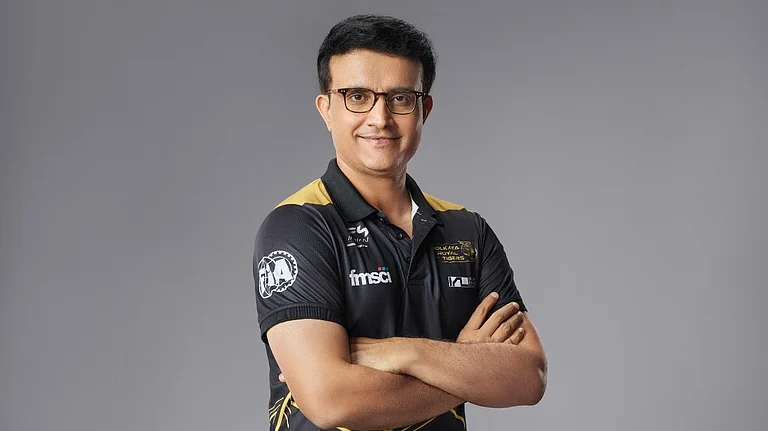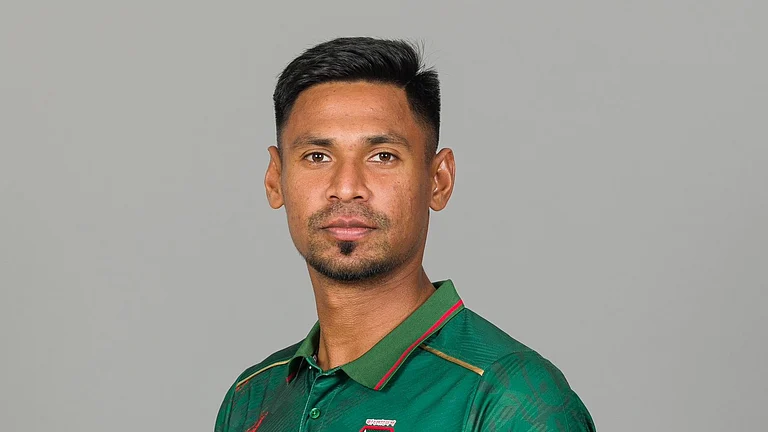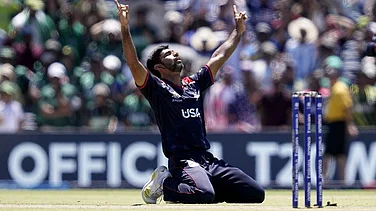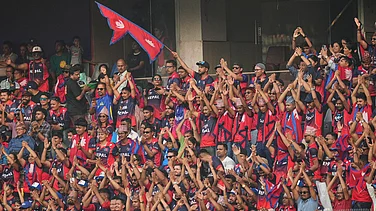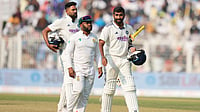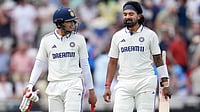Like most red-ball cricketers of our generation, one of my friends, a former provincial cricketer from Cape Town who still represents South Africa in 50-over ODI World Cups, is not a great fan of modern-day T20 cricket. He recently sent me a photograph of Michael Holding saying he only commentates on cricket, when asked why he was not in an Indian Premier League (IPL) commentary box. (Full IPL Coverage | More Cricket News)
And a video of one of our former coaching instructors at the National Cricket Academy, saying that he rarely watches IPL games.
These sentiments were echoed by a few other friends and contemporaries, who said much the same thing – that they don’t watch IPL very often now.
I can understand why.
Totals and run-chases are getting bigger and bigger in this edition of the IPL, and while making for great entertainment as the ball disappears to all corners of the ground and indeed, of the stadium itself, it is also setting daunting new benchmarks for T20 cricket as a whole.
Sometimes it makes you wonder about the bowlers, some of whom rank amongst the greatest in the game.
Last Tuesday (April 16, 2024), Rajasthan Royals, powered by the very special Jos Buttler, chased down KKR’s seemingly invincible 224 off the last ball of the match, matching a similar successful run-chase in terms of numbers, from four years ago.

And when the scores chased in 20 overs are of that magnitude, it is hard not to feel for the bowlers being put to the sword in these run feasts. It is great viewing if you are a fan or a batter, maddening if you are a bowler trying to restrict the opposition.
No total seems safe anymore.
Yet there were times in that run chase led by Buttler, when the target looked impossible. A bridge too far, so to say, and the run-flow seemed to be drying out and running out of steam.
But Jos Buttler persevered, even when he was finding it difficult to get the ball away, and wickets were tumbling at the other end.
The advantage of playing a long, ‘anchoring’ innings in a T20 and “taking the game deep” as players and coaches like to call it, is that it allows the ‘anchor’ to slowly whittle down a large target into a smaller, more gettable one over time, if they can keep the scoreboard moving at a reasonable rate in their partnerships down the order.
Often bringing it down to one that can be attempted and reached with a final breathtaking flourish in the death overs.
Mountaineers making summit bids to reach the top of a peak, fittingly call it the ‘Final Assault.’
The mad scramble in the death overs of a T20 is a lot like the summit party setting out for the peak of Mount Everest from Camp 5 on the mountain, at 3 AM in the night.
It is usually a do-or-die moment.
That party has steadily and gradually come up the mountain from Base Camp, stopping at various intermediate camps on the way.
And that is exactly what it is like in a big run-chase, with its hiccups and stumbles and fleeting ‘catching your breath’ waypoints.
Leading to a moment of pure bliss when finally arriving at a sudden clutch of big overs, after struggling and hanging in there through the middle overs.
Just keeping the faith that those big overs will come.
The target suddenly comes down to a much more gettable number in the last 4-5 overs, often leaving a fairly ‘comfortable’ 12 or 14-run ask in the final over.
Although even that would have been considered impossible some years ago, before cricket changed gears and it started raining maximums all around the ground, in a spectacular burst of 360-degree run-scoring.
And once a player has hit that kind of flow and momentum, they are backing themselves to easily hit a couple of sixes and fours in the final over and get their side over the line, with a couple of balls to spare.
That, pretty much, was the essence of the insights into the thought process that Jos Buttler shared at post-match interviews that day.
“Keep believing, that was the real key today,” Buttler said at the post-match presentation after his hundred had helped Rajasthan Royals equal the highest-ever IPL chase.
“At times, I felt like I was struggling a bit for rhythm. (But) anytime the negative thoughts come, I think the complete opposite and dare to dream. That’s what kept me going.”
Progressing to a relatively sedate 42 off 34 balls, Buttler seemed to be hitting a plateau. A place from where the only option would be an oft-fatal chancing of the arm, in an attempt to try and break the shackles.
Often with tragic results for the batter and their team.

“The worst thing you can do when you are not feeling your best is to fight it and try to force the issue and give your wicket away,” he said.
“There’s been plenty of times throughout the IPL, you’ve seen crazy things happen. Guys like Dhoni and Kohli, the way they stay till the end and keep believing, you’ve seen it so many times in the IPL and I was trying to do the same.
That’s something Kumar Sangakkara has told me a lot—there’s always a little breaking point,” he added.
“He just tells me to stay there and at some point, the momentum will shift or you’ll find your rhythm or one shot will get you going. That’s been a big part of my play over the last few years — trying to stay the course and not get in my own way.”
Sage words from one of the greatest ICC Hall of Famers to have the graced the game.
Yet, so difficult to follow in these pressure-cooker situations demanding instant results. Only players with a certain kind of mental strength can do it.
Buttler himself named a few of them that day.
He couldn’t have launched that spectacular assault on the hapless KKR bowlers, had he not gritted his teeth and stayed on when the going was slow and taken the game into the death overs with his side still alive, instead of throwing it all away in an effort to force the pace. That takes courage and determination, and above all, a lot of self belief.

That is the key to these big, successful T20 run chases. A great player biding their time, backing themselves and holding their nerve when the going is slow, and not giving it away. It is much the same for 50-over cricket as well, and our generation will remember Ravi Shastri winning the ‘Champion of Champions’ Audi at Melbourne, in the 1985 Benson and Hedges World Championship of Cricket, despite not being the most explosive batter of his era.
He was, in fact booed for slow batting on occasion in spite of being one of the handful of cricketers ever to have hit six sixes in an over in a first-class match.
But he always kept one end going and built partnerships that ultimately led his team to memorable victories.
Progressing to good individual scores himself, in the process.
The same thing holds good even today nearly 40 years later, in this much abbreviated format.
If Test cricket is a test of character over the long term, this is no less, over a compressed, much more intensely pressured period of time.
So maybe T20 is not just the slam bang circus that it is usually made out to be, and maybe there is more to it than people hitherto suspected!
And outrageous shots and baseball-style slogs notwithstanding, maybe one day the old school will grudgingly acknowledge that fact.
It will never be called a ‘Test’, but maybe it is that, in more ways than one.
The views and opinions expressed are those of the author. The author is a veteran Wing Commander of the Indian Air Force, who has played Ranji Trophy for Services.








